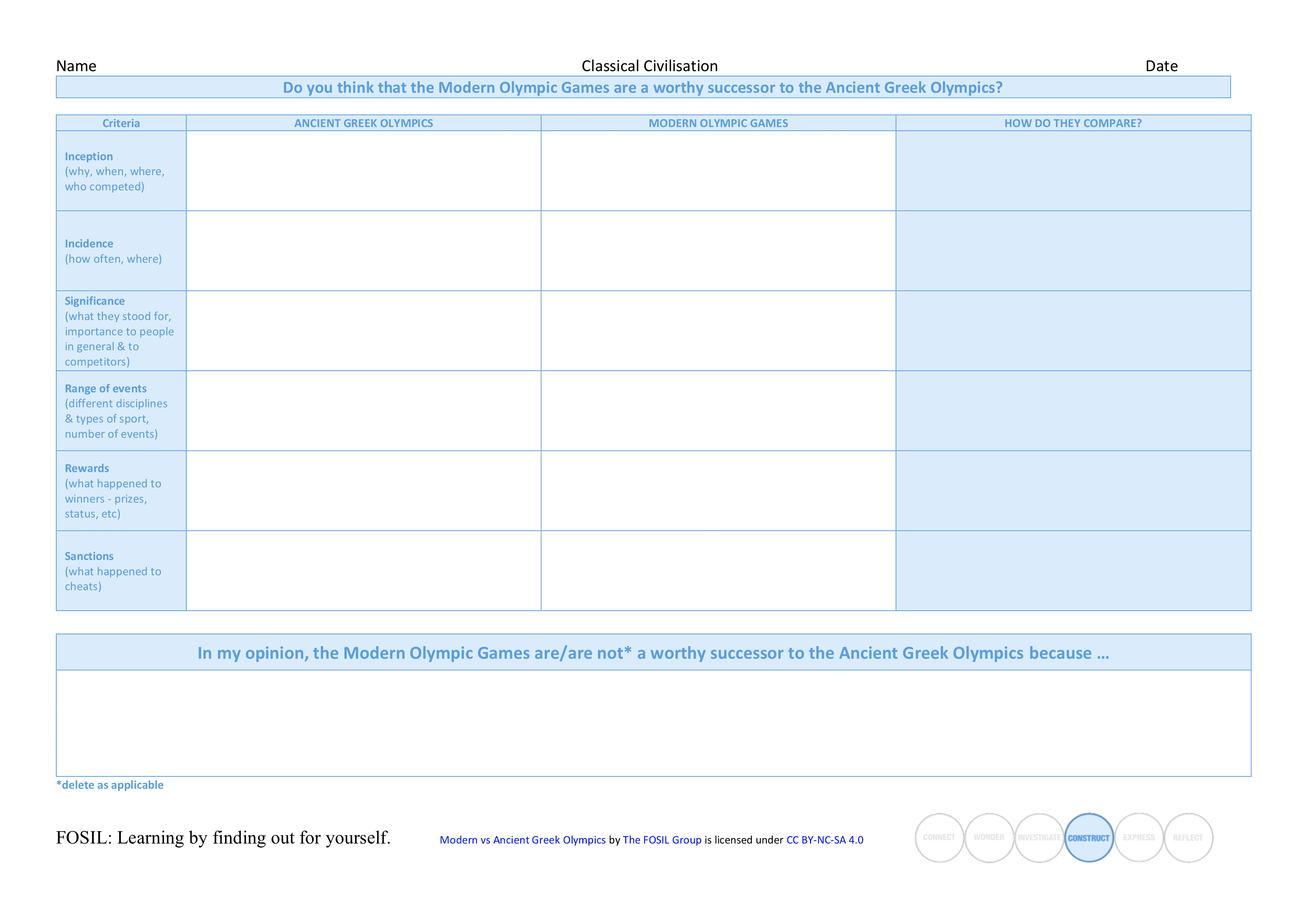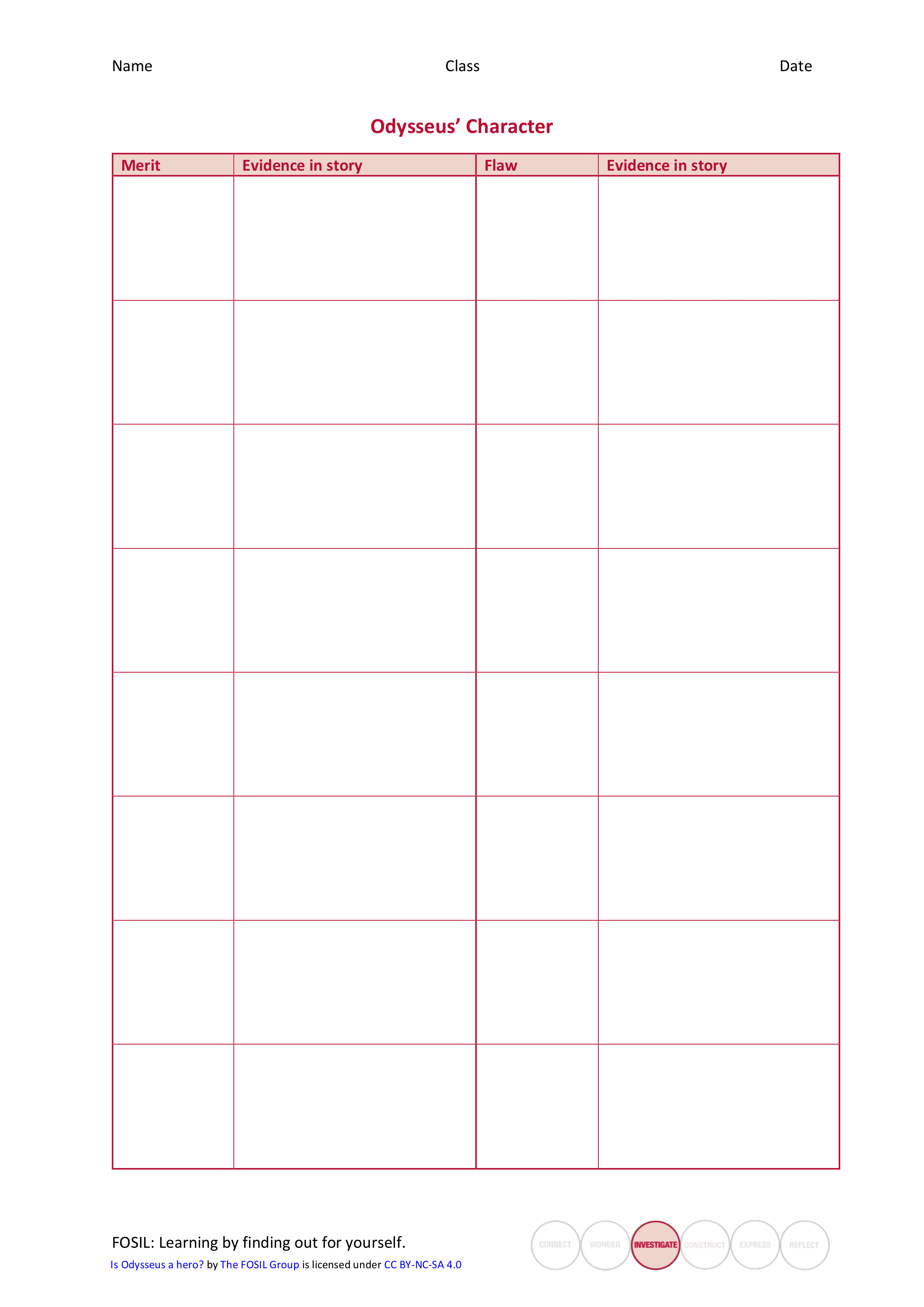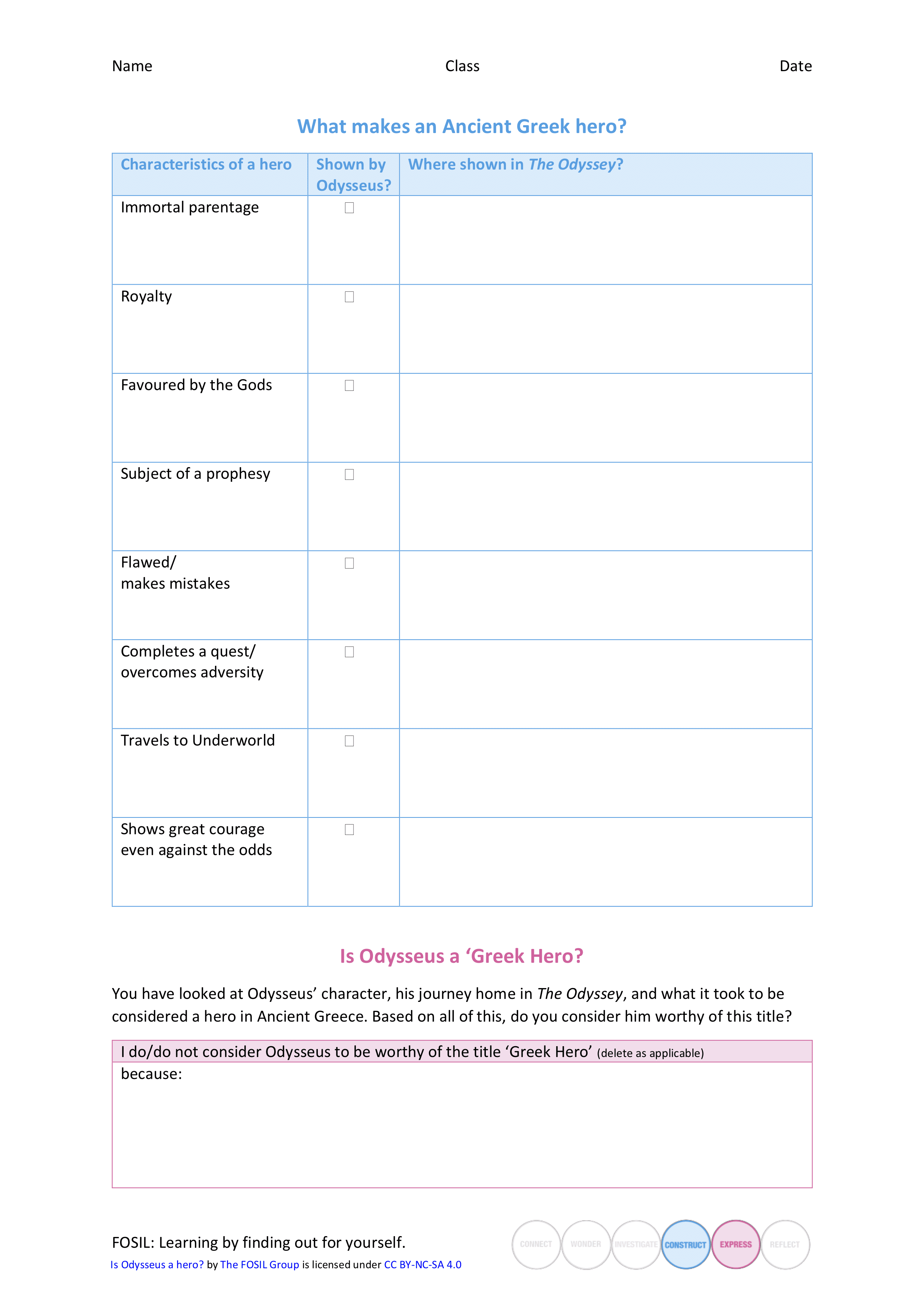Reply To: Year 8 – Classical Studies
Home › Forums › Inquiry and resource design › Year 8 – Classical Studies › Reply To: Year 8 – Classical Studies
Discussing and developing resources for our Classical Studies course with Richard has been really useful for me in figuring out what it is that teachers really want their pupils to get out of a topic and then working backwards from that point to help them get there as successfully as possible. While this has always been my approach, it has usually been focused around something concrete like the EE or IRP which come with relatively strict guidelines, or around inquiries that we have been developing and steering towards our own objectives.
In the case of this course, the overarching aim is to develop an interest in the Classical World along with an awareness of the ways in which the Ancient Greeks have shaped modern society. With this in mind, our first collaboration on a lesson planning, rather than background discussion level, focused on what the Ancient Olympics were and what they stood for – as this was what we had identified as the desired outcome. To this end, the Construct sheet we developed used criteria decided upon by the pupils in the Connect and Wonder Stages – what they already knew about the Ancient Olympics or wanted to know – as this allowed them to consolidate the work they had done in class – and provided an opportunity to consider what they knew about the Ancient Olympics against the modern version of the games, which was probably more relevant to their own lives – especially after the disappointment of the 2020 Games being postponed.
This comparison proved quite challenging for some pupils and made us realise that they perhaps needed more time to consider the comparison and what it meant than they had been allowed – or perhaps more assistance in the build up would have been a good idea.
As a result, the next topic on which we collaborated, once pupils had explored Odysseus’s journey home from the Trojan War in The Odyssey, provided them with the opportunity to go back to the journey to identify different episodes and Odysseus’s behaviour at that part in the story, before asking them to consider whether he fitted the image of an Ancient Greek hero (a topic from earlier in the course). We therefore developed two resources to steer pupils towards the desired outcome. Adding this extra step had a very positive effect on the outcome and on pupils’ general response to the chaotic, and predominantly remotely experienced, end to the topic. It also gave us food for thought over the holidays as we looked ahead to the warfare topic.




